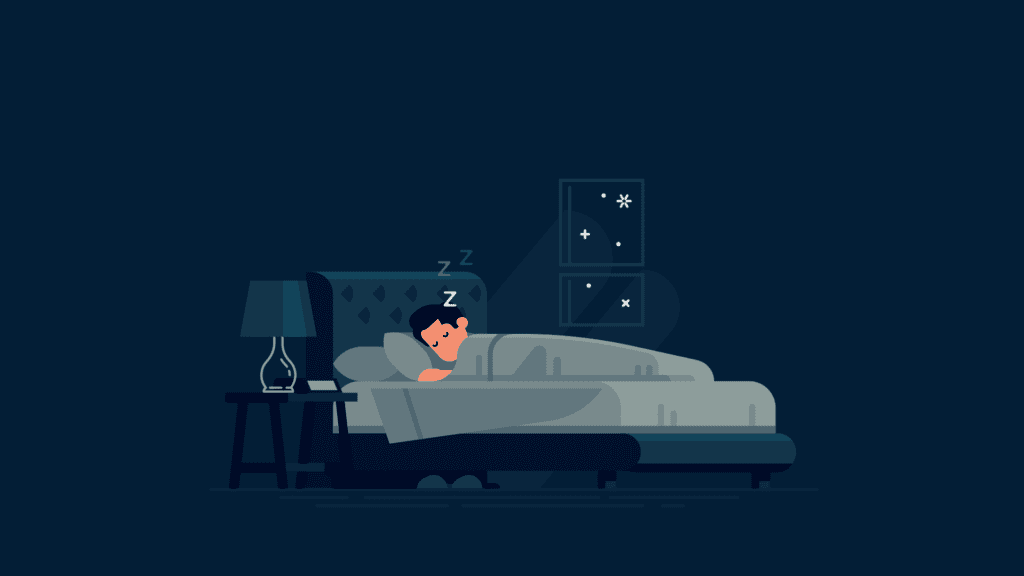Why Sleep is Crucial for Your Health and Fitness
17/11/2020
It’s no surprise that sleep is one of the most pivotal processes in our day to day lives, and a lot of us are not getting enough of it.
When it comes to health, fitness, and our life’s longevity, there is arguably little that compares with the power of sleep. It’s our body’s time to recuperate after a long day at school, work, or in the gym, and forgoing a good night’s sleep takes away your ability to repair muscle, compile memories, and to normalise hormones.
As we know, both sleep and fitness are imperative to maintaining a healthy lifestyle; however, a good portion of the population seem to choose one over the other instead of focusing on both.
In this article, we’ll look at a few of the reasons sleep is so crucial for our health and fitness; and how to get a better night’s sleep.
Sleep Aids Muscle Recovery and Growth
As we’re sure you’ll agree, after a killer session in the gym, you’re likely to be feeling relatively tired and burnt out. You might be feeling a rush of endorphins and feel rather amazing but still somewhat tired.
When we hit the gym or do any exercise, we’re creating tears in our muscles, promoting a rebuild. This is a very strenuous activity for the body, and it needs a lot of rest to work correctly.
A lot of people are under the impression that their muscles grow when they’re actively working them — this is untrue. The growth and strength improvements happen during our sleep. Getting a solid 8 hours of sleep is imperative for improving fitness and visible growth in our muscles.
Sleep Improves Performance and Endurance
In a similar vein to muscle recovery and growth, sleep also gives us the strength to power through a workout.
When we are well-rested, we have a heightened ability to focus and a lot more energy to output into a workout. This helps us lift heavier weights, run further on our outdoor trails, and be more aware of what we’re doing — reducing our risk of injury.
Much like the risks associated with driving while tired, our bodies cannot focus on being controlled or ‘intelligent’ when we’re doing fitness-related tasks if we’re sleep-deprived, which reduces performance along with increasing the risk of hurting ourselves.
Sleep Decreases Poor Eating and Over-snacking
One crucial point to note about sleep and our overall health and fitness is its ability to regulate our appetite.
Far too few people understand the correlation between sleep, diet, food consumption and weight gain, and without this knowledge, you’re giving up a lot of those gains from working out.
When we’re sleep-deprived, or just lacking sleep in a general sense, our bodies are on the hunt for foods to give us any energy, and our brains reward us with an overly active ability to taste flavour.
To keep things short, when we don’t get enough sleep, we not only overindulge to offset our lack of energy, but our bodies crave unhealthy foods.
Sleep Regulates Metabolic Process
From various sleep studies, such as one conducted by the University of Chicago’s School of Medicine, we now know that sleep is a crucial factor in regulating our metabolism.
Essentially, the results from this study revealed that in those who were sleep-deprived, fat cells simply did not work the way they’re supposed to. Generally, our fat cells work to store energy and release it when it’s most needed, though in sleep-deprived participants these fat cells weren’t releasing the energy when needed, or often at all.
When it comes to fitness, if your fat cells and metabolic process aren’t in tip-top shape, you’re making it a whole lot harder for your body to power through a workout, lose weight and stay strong.
6 Simple Sleep Tips
With all of the points above out of the way, we have some quick sleep tips to help aid your sleep routine. Be sure to create a sleep schedule that works best for you, and remember not to choose fitness over sleep.
#1 Invest in Combating Sleep Issues
Our biggest tip is to understand and mitigate sleep issues you’re struggling with. Whether it be back pain, sleep apnea, or any other issue, it’s worth investing in a new mattress, pillow, or even a CPAP machine from brands like CPAP Direct to keep your sleep in check. Your body will pay you back for this.
#2 Set a Routine or Reminder
Using a smartphone, or Apple’s latest iOS 14, make use of the new sleep schedule settings and switch off before bed time. Almost all of us use our phone right up until bedtime, so do your best to give yourself some offline time around thirty minutes before bed.
#3 Don’t Go to Sleep Hungry
Give yourself a small, healthy snack before bed if you tend to go to sleep hungry and wakeup during the night. An easy-to-digest snack like some fruit before bed reduces the chances of waking up during the night and disrupting your sleep schedule.
#4 Sleep In a Dark Bedroom
The darker, the better. Ideally, you want to invest in some blackout blinds, but you can also purchase a sleeping mask that works well too.
#5 Avoid Bright Lights Before Bed
This includes any screens such as your phone, TV, and laptop. The bright blue light will keep your body stimulated and awake. Instead, switch off these devices at least 1 hour before bed.
#6 Take Sleep Supplements
I wrote a post on this (3 supplements that will help you sleep like a baby) so feel free to read that after this post. Taking sleep supplements can promote good sleep and recovery from your fitness workouts.